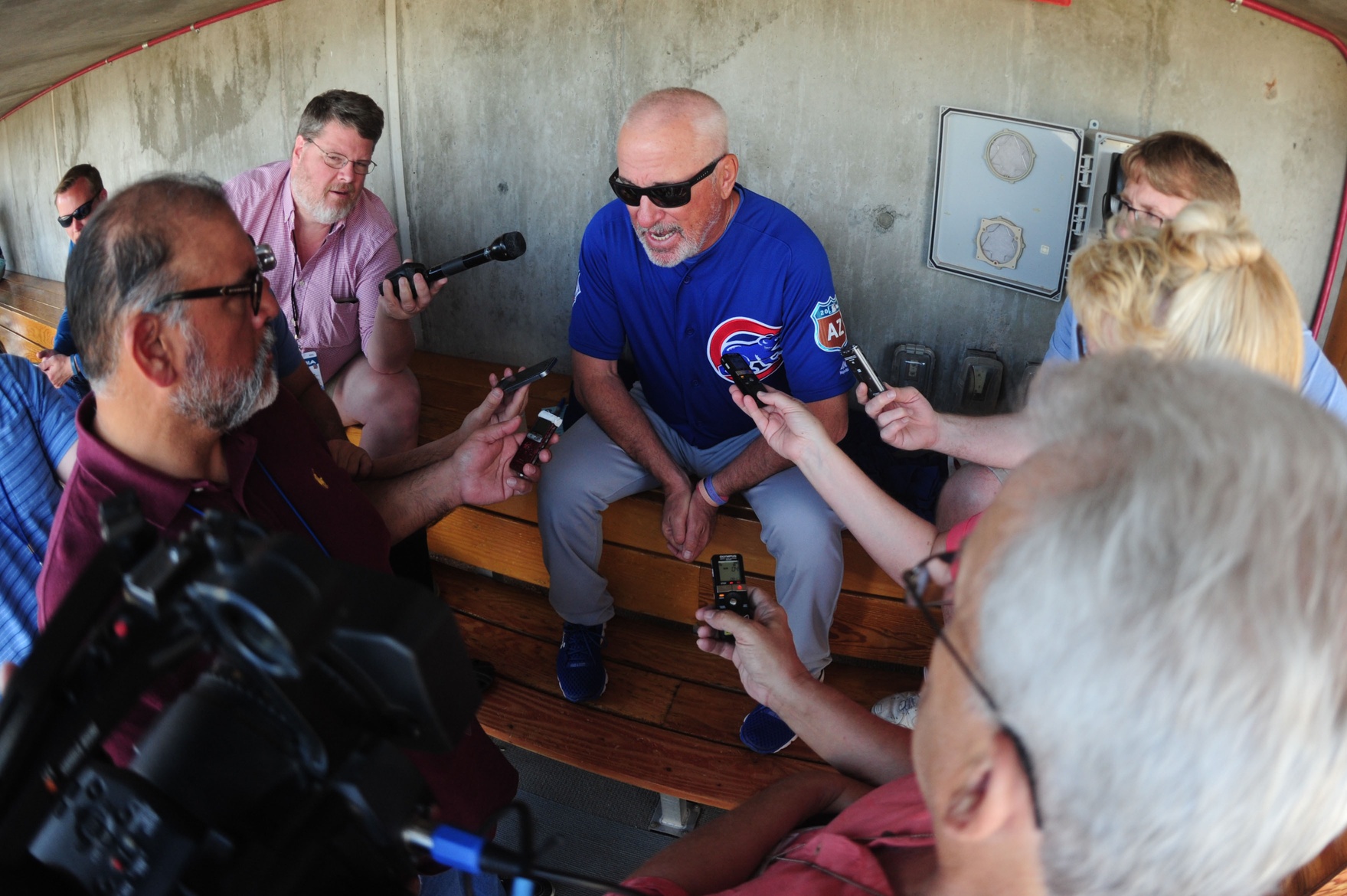“I think we’re too young to even realize what we just did,” Kris Bryant said last October after the Cubs clinched their spot in the NLCS. Instinctive and honest, the statement was emblematic of that 2015 team, which excelled in such an unselfconscious, fearless way.
But that fearlessness wasn’t just a product of youth and talent; essential to the effort was the leadership of Joe Maddon, who all year guided the team with emotional intelligence and helped set the Cubs organization apart with his zeal for psychology and the mental side of baseball.
Justine Siegal, who has coached with the Oakland Athletics and holds a Ph.D in sports psychology, has a fantastic term for guys like Maddon, who bring an interdisciplinary approach to the game: “Renaissance Managers”. In addition to baseball’s classic five tools, Maddon has fully embraced mental skills as a sixth tool, and in doing so, he’s helping to destigmatize the pursuit of mental health in professional sports and rebrand the role of psychology in team dynamics.
Psychology has evolved relatively recently from a science primarily focused on healing to one which also addresses thriving individuals and communities. In the 1990s, the distinct field of positive psychology emerged, and there are distinct parallels between it and Maddon’s new school approach to mental conditioning.
“The aim of positive psychology is to begin to catalyze a change in the focus of psychology from preoccupation only with repairing the worst things in life to also building positive qualities,” wrote Martin Seligman and Mihály Csíkszentmihályi, who helped to develop the branch of study. Similarly, the Cubs’ mental skills program, which is team-wide and culture-defining, stands in stark contrast to the classic role of a team psychologist, whom players generally seek out only when they’re struggling and seeking repair.
Csíkszentmihályi is also known as the identifier of the psychological concept of “flow”, an immersive state of focus sometimes seen in artists, musicians, athletes, or any person involved in a goal-oriented, skillful challenge. Flow state, which athletes tend to allude to with terms such as “being in the zone”, may take on the following characteristics:
- Intense and focused concentration on what one is doing in the present moment
- Merging of action and awareness
- Loss of reflective self-consciousness (i.e., loss of awareness of oneself as a social actor)
- A sense that one can control one’s actions; that is, a sense that one can in principle deal with the situation because one knows how to respond to whatever happens next
- Distortion of temporal experience (i.e., time slows down)
- Experience of the activity as intrinsically rewarding, such that often the end goal is just an excuse for the process
Sound familiar? Cubs culture under Maddon has been defined by its fostering of confidence, being oneself, and remaining in the present. The last point is especially pertinent, because Maddon is a man who loves Process.
Last Friday, for example, after Munenori Kawasaki serenaded Cubs camp with his impassioned rendition of Aerosmith’s “Don’t Wanna Miss a Thing,” Maddon was informed that the Japanese lettering on the headband he wore (the whole team wore them, in fact) read “Must Win”.
“I’m digging on it,” he said in classic Maddon fashion. “Although we don’t use the word ‘winning’ here a lot.” The skipper said that he’d instead like to see a headband that says “The Process is Fearless”, a mantra he also espoused during the last postseason. “If you’re really focusing on outcome and just winning, then you can become fearful. But if you just focus on the process, the process is fearless.”
You can find the backing of psychology throughout the environment Maddon creates, even in elements which tend to be written off as just wacky fun. Aside from the karaoke spectacular, Spring Training in Mesa has already seen clowns and a dance battle, which in their own way comprise a logical continuation of the exotic petting zoo and pajama dress code which Maddon engineered for the team in 2015. This logic, put simply, says that fun in the workplace is significant and beneficial, even when your day job is playing a game.
It’s the very same reasoning that has led countless tech companies to fill their workspaces with rock climbing walls and foosball tables, thereby (presumably) hoping to wring an extra little bit of performance out of their employees. Wrigley Field won’t see a climbing wall anytime soon, but that same brand of freedom is certainly evident when players are on the field petting a cheetah before batting practice.
While it’s difficult to draw precise lines between productivity in an office and productivity on a baseball diamond, the effectiveness of this strategy for the Cubs as been affirmed anecdotally by players like Dan Haren, who recently spoke with Jonah Keri about his career-closing stint on the North Side.
“He [Maddon] keeps it so loose, there are no rules, and I think when he does that, he kind of expects the players to give him just a little bit more.” Haren explained. “He wants that little extra in the eighth inning when the game’s on the line, and I think he gets it.”
Should the Cubs continue to give that little extra on their way success in 2016, other organizations may similarly embrace this psychologically-rooted approach to team dynamics. It’s unknown whether Maddon simply has a special instinct for working with people or whether he is in fact pouring over some of Csíkszentmihályi’s works in his spare time, but knowing what we do about this Renaissance manager and his love of data and knowledge, it wouldn’t come as too much of a surprise if it was a bit of both.
Lead photo courtesy Matt Kartozian—USA Today Sports.
